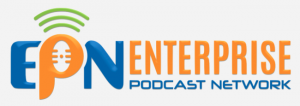 In this podcast, Kevin Hancock speaks about his new book The Seventh Power: One CEO’s Journey into the Business of Shared Leadership with Enterprise Radio’s host Eric Dye. They discuss his journey to Pine Ridge and how it led to a new way of leadership. Kevin is an advocate of strengthening voices of all individuals—within a company or a community—through listening, empowerment, and shared leadership.
In this podcast, Kevin Hancock speaks about his new book The Seventh Power: One CEO’s Journey into the Business of Shared Leadership with Enterprise Radio’s host Eric Dye. They discuss his journey to Pine Ridge and how it led to a new way of leadership. Kevin is an advocate of strengthening voices of all individuals—within a company or a community—through listening, empowerment, and shared leadership.
Click here to listen to the full podcast.
Here are a few highlights from the podcast (click here for the full transcription):
- First, for the first time I understood what it was like to not feel fully heard. And second, at Pine Ridge I came to realize there are lots of ways to lose your voice in this world or to not feel authentically heard. And then third, which was this big leadership idea. When I started looking at history, it really hit me that throughout history, leaders had probably done more to restrict, and intimidate, and hinder others than to liberate them and empower them. And that’s really when it hit me that the partial loss of my own vice was actually a blessing in disguise and an invitation to lead differently and see if I could help create an organization in our company than perhaps beyond where everybody felt heard and everybody felt respected, trusted, empowered, and important. (02:59-04:28)
- I think simply put, it’s look at the traditional leadership model that governs much of the planet today. It’s really an organizationally centric model where the power of decision-making and control has been pulled into the center, the corporate-cratic headquarters of the organization. And the individuals who are a part of that organization have traditionally been encouraged either overtly or covertly to sacrifice a bit of their own voice and identity for the purpose of serving the center, in a power to the center model. But if you look globally today at engagement level, people’s enthusiasm for their place of work or their confidence in their government shows statistically that their confidence was very low. And I believe that’s because we’re moving into a period in human history where increasingly individuals are wanting to serve their own vice and strengthen their own souls. But organizations are a bit behind that curve. In fact, they’re still very self- centered. To me, the idea to flip the script on the traditional model of organizational structure. And instead of collecting power in, the goal is to disburse it and push it out, and create a culture where everybody shares the responsibilities and the opportunities for leadership. (04:45-07:04)
- A company is going to put a high priority on being profitable and having excellent customer service, of course. But to me, profitability really should be an outcome, not the goal. If an organization takes exceptional care of the people that work there, those people will figure out how to take world class care of customers, and that will produce high quality results for the company. But those corporate results are really the outcome of adding that value to the lives of the people who work at the company. (10:16-11:02)